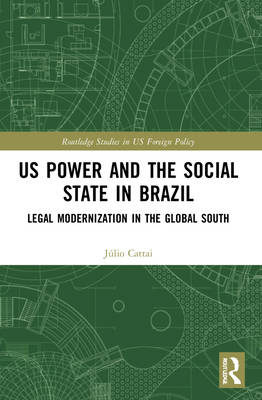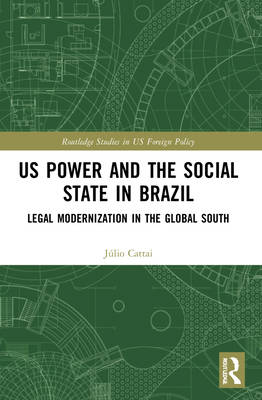
- Afhalen na 1 uur in een winkel met voorraad
- Gratis thuislevering in België
- Ruim aanbod met 7 miljoen producten
- Afhalen na 1 uur in een winkel met voorraad
- Gratis thuislevering in België
- Ruim aanbod met 7 miljoen producten
Omschrijving
The book analyzes the elite-led efforts to transform the Brazilian legal order in the period between 1930-1975 and how U.S. Power played a major role in such a process. Besides the global circulation of ideas, the book discusses the Brazilian institutional development in the period.
A profound "Crisis of Civilization" marked the first decades of the century: the references of space and time vanished with the vertiginous expansion of cities and industries, while a myriad of immigrants and former slaves were alleged to be threatening the country's traditions. Brazilian elites blamed liberalism for such a "Crisis". Based on a decade of research, this book centralizes Brazilian history in liberalism and offers a genealogy of the jurisprudential and institutional struggles to correct the culture of laissez-faire. Using archival sources, it shows the direct U.S. influence on Brazilian thought and development. Recasting the history of legal ideas in the 20th century and providing novel interpretations on major political processes, it offers a rigorous and fresh look at the development of liberalism in the country.
Covering five decades of history and offering a transnational approach involving the U.S. hegemonic role in Brazil, this book will be of interest to scholars and students of law, U.S. foreign policy, area studies and international relations.
Specificaties
Betrokkenen
- Auteur(s):
- Uitgeverij:
Inhoud
- Aantal bladzijden:
- 214
- Taal:
- Engels
- Reeks:
Eigenschappen
- Productcode (EAN):
- 9780367643188
- Verschijningsdatum:
- 25/09/2023
- Uitvoering:
- Paperback
- Formaat:
- Trade paperback (VS)
- Afmetingen:
- 156 mm x 234 mm
- Gewicht:
- 322 g

Alleen bij Standaard Boekhandel
Beoordelingen
We publiceren alleen reviews die voldoen aan de voorwaarden voor reviews. Bekijk onze voorwaarden voor reviews.












